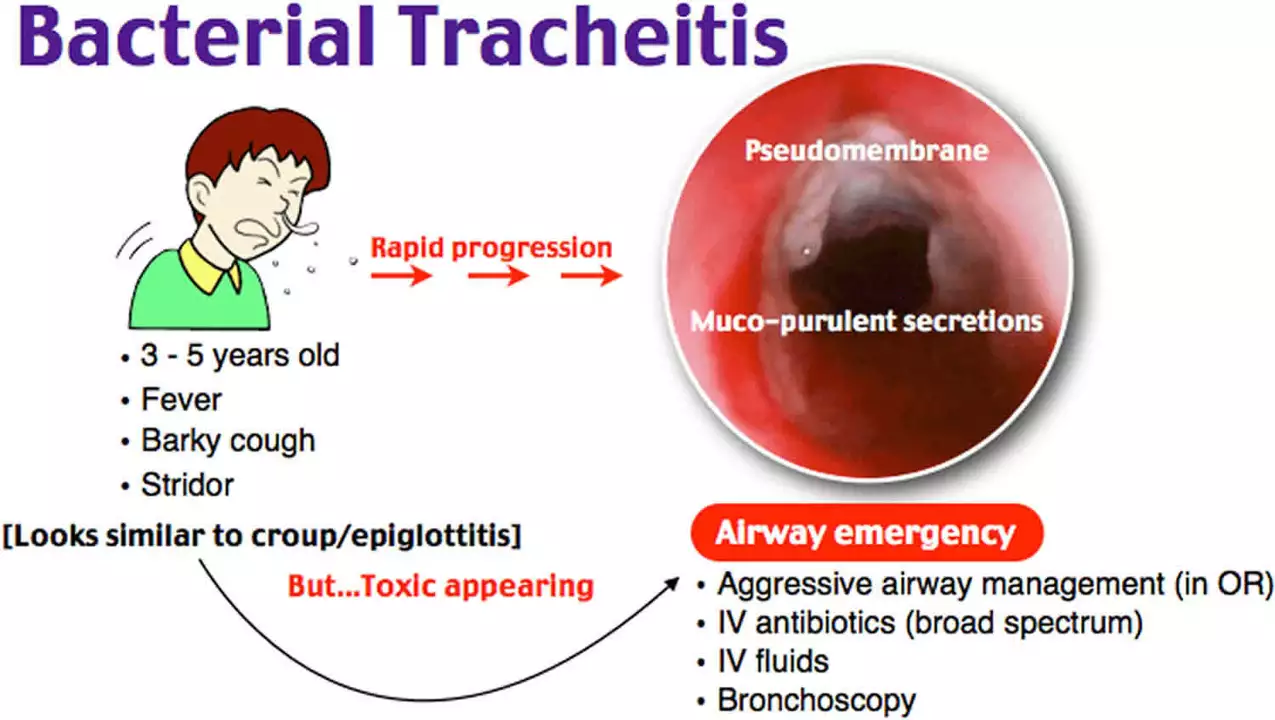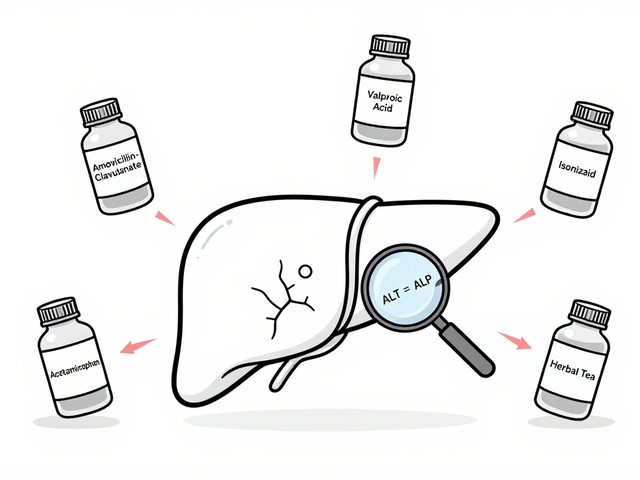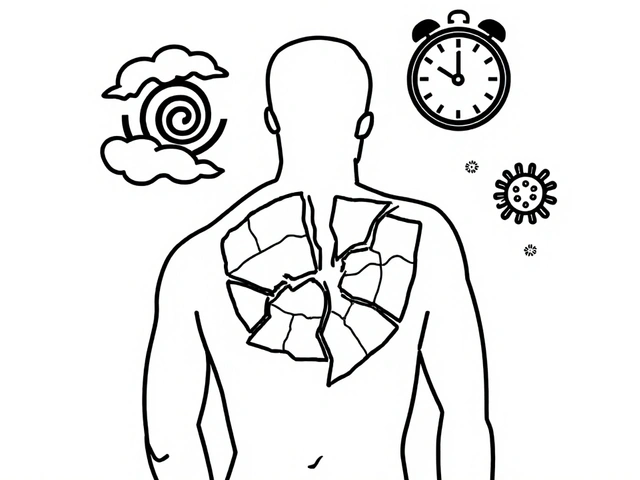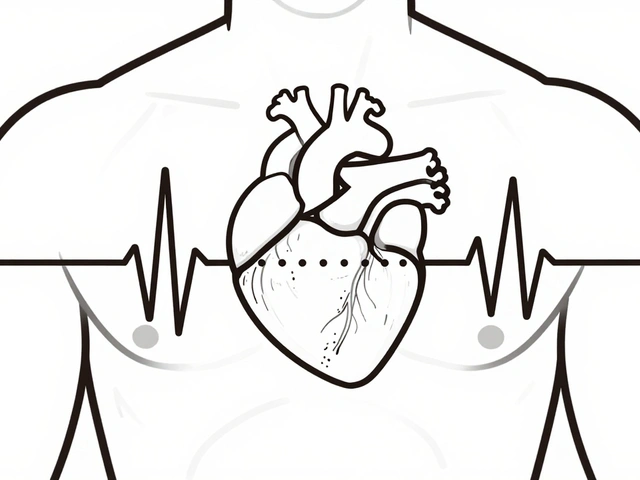Understanding Bacterial Infections: Causes, Symptoms, and Treatments

- Colin Hurd
- 11 May 2023
- 13 Comments
Introduction to Bacterial Infections
As a blogger, I often encounter questions from readers about bacterial infections. Many people want to know what causes them, what the symptoms are, and how they can be treated. In this article, I will do my best to help you understand bacterial infections so that you can take better care of yourself and your loved ones. I will cover six main topics, which will be the structure of this article. Let's dive in!
Causes of Bacterial Infections
First, let's discuss the causes of bacterial infections. Bacteria are microscopic single-celled organisms that can be found almost everywhere: in the air, water, soil, and even on our own bodies. While most bacteria are harmless or even beneficial, some can cause infections. These harmful bacteria, also known as pathogens, can enter our bodies through various means, such as:
- Contaminated food or water
- Inhaling airborne bacteria
- Direct contact with infected people or animals
- Breaks in the skin, such as cuts or wounds
- Sexual contact
- Medical procedures, such as surgery or the use of contaminated needles
Once inside, these harmful bacteria can multiply rapidly and release toxins that damage our body's tissues, leading to a bacterial infection.
Symptoms of Bacterial Infections
The symptoms of bacterial infections can vary greatly depending on the type of bacteria involved and the area of the body affected. Some common symptoms include:
- Fever
- Chills
- Fatigue
- Muscle aches and pains
- Swelling and redness at the site of infection
- Pus production
- Diarrhea or other digestive issues
- Shortness of breath or coughing
It's important to remember that these symptoms can also be caused by other factors, such as viral infections or other medical conditions. That's why it's essential to consult with a healthcare professional if you suspect you have a bacterial infection.
Diagnosis of Bacterial Infections
Now let's talk about how bacterial infections are diagnosed. Doctors will usually start by taking a detailed medical history and conducting a physical examination. They may also order various tests to help confirm the presence of bacteria and identify the specific type causing the infection. These tests may include:
- Blood tests
- Urine tests
- Stool tests
- Imaging tests, such as X-rays or CT scans
- Cultures of samples taken from the site of infection
Once the specific bacteria causing the infection have been identified, your doctor can determine the most appropriate course of treatment.
Treatment Options for Bacterial Infections
There are several treatment options available for bacterial infections, depending on the severity and type of infection. Here are some common treatments:
- Antibiotics: These are medications specifically designed to kill bacteria or stop them from multiplying. They are available in various forms, such as oral tablets, creams, or injections. It's crucial to take antibiotics exactly as prescribed and to complete the full course of treatment, even if you start feeling better before finishing the medication.
- Over-the-counter pain relievers and fever reducers: These can help manage symptoms such as pain, fever, and inflammation. Be sure to follow the dosage instructions on the label and consult your doctor or pharmacist if you have any questions.
- Rest and fluids: Giving your body time to rest and recover, along with staying well-hydrated, can help your immune system fight off the infection more effectively.
- Probiotics: Some studies have shown that taking probiotics, which are beneficial bacteria, can help restore the balance of good bacteria in your body and promote overall health. Always consult your doctor before starting a probiotic supplement.
In some cases, more invasive treatments may be necessary, such as surgery to remove infected tissue or drain an abscess. Your doctor will determine the most appropriate treatment plan based on your specific situation.
Preventing Bacterial Infections
Preventing bacterial infections is just as important as knowing how to treat them. Here are some tips to help you reduce your risk:
- Wash your hands regularly with soap and water, especially after using the restroom, before preparing or eating food, and after touching animals.
- Keep your vaccinations up-to-date, as some vaccines can help protect against bacterial infections.
- Practice safe food handling techniques, such as storing foods at the proper temperature, washing fruits and vegetables, and cooking meats to the recommended internal temperature.
- Use proper protection during sexual activity, such as condoms, to reduce the risk of sexually transmitted bacterial infections.
- Avoid sharing personal items, such as toothbrushes, razors, or towels, to prevent the spread of bacteria.
- Keep wounds clean and covered to prevent bacteria from entering your body through broken skin.
By following these simple steps, you can significantly reduce your risk of developing a bacterial infection.
Conclusion
I hope this article has helped you better understand bacterial infections, their causes, symptoms, and treatments. Remember that prevention is key, and if you suspect you have a bacterial infection, always consult with a healthcare professional to ensure proper diagnosis and treatment. Stay healthy!




Comments
ashish ghone
First of all, great job breaking down bacterial infections into clear sections! 🌟 It’s so important to recognize how everyday habits, like washing hands and staying hydrated, can make a huge difference in preventing these pesky germs. 🤗 Remember that when you feel a fever or notice unusual swelling, it’s a signal that your immune system is rallying, and seeking medical advice early can prevent complications. 🩺 Also, completing the full course of prescribed antibiotics, even if you start feeling better, helps stop resistant bacteria from emerging. 🍀 Keep up the diligent care, stay informed, and don’t hesitate to share this knowledge with friends and family. 😃
May 11, 2023 AT 05:55
steph carr
I love how the article emphasizes simple hygiene steps that are universal across cultures. It’s a reminder that prevention doesn’t have to be complicated, just consistent. Keeping vaccinations up‑to‑date is especially crucial for vulnerable populations. Staying optimistic about our ability to stay healthy makes it easier to follow these habits. Keep spreading the good information!
May 11, 2023 AT 06:40
Vera Barnwell
It’s astonishing how the mainstream medical community glosses over the hidden dangers lurking behind every prescription bottle, and you, dear reader, deserve to know the full truth. The so‑called “antibiotics” are not mere miracle weapons; they are double‑edged swords that can turn our own microbiome into a battlefield of chaos. Every time you pop a pill, you’re not only killing the offending pathogen but also paving the way for super‑bugs to thrive in the shadows. The syndicate of pharma giants has been quietly ensuring that we remain dependent on their ever‑growing arsenal, all while the public remains blissfully unaware. Moreover, the article fails to mention that improper waste disposal of antibiotics can seep into our water supply, further contaminating the environment. Imagine a world where everyday surfaces are saturated with low‑level antibiotics, subtly reshaping bacterial evolution. The diagnostic tests listed, while useful, are often riddled with false negatives, leading doctors to prescribe broad‑spectrum drugs indiscriminately. This, in turn, fuels the rise of multi‑drug‑resistant strains that no longer respond to conventional treatment. You might think that probiotics are a harmless afterthought, but recent studies suggest that many over‑the‑counter formulations contain strains that are either ineffective or, worse, engineered to outcompete native flora for profit. The article’s brief mention of “rest and fluids” sounds almost condescending, as if a simple cup of water could thwart a sophisticated infection. Skin breaches, those tiny openings we so often ignore, are prime entry points for opportunistic microbes that have learned to exploit our complacency. Even the basic hand‑washing routine can be compromised if the soap itself is contaminated-a fact that alarmists rarely discuss. In short, the battle against bacterial infections is not a simple checklist but a complex, ever‑shifting war zone where vigilance, skepticism, and critical thinking are our best allies. Stay alert, question the narratives, and never accept a one‑size‑fits‑all solution without probing deeper. Your health, and the health of future generations, may depend on it.
May 11, 2023 AT 08:03
David Ross
Absolutely love the thoroughness of the guide!!!, and the emphasis on hygiene, rest, and proper antibiotic use is spot‑on!!!, keep spreading this vital info, folks!!!
May 11, 2023 AT 09:26
Henry Seaton
Bacteria are everywhere, so stay clean.
May 11, 2023 AT 10:50
Baby Thingie
The information is well‑structured. :) However, some statements could benefit from clearer citations.
May 11, 2023 AT 12:13
Barbra Wittman
Oh, what a groundbreaking revelation-bacteria are everywhere! Who would have thought that a species as ancient as microbes could inhabit our surroundings? It’s truly astonishing that we need a reminder to wash our hands, as if the concept were novel. Yet, here we are, scrolling through yet another post that tells us the obvious. Perhaps next time we’ll learn that the sky is blue and water is wet. Let’s all applaud the effort to state the indisputable.
May 11, 2023 AT 13:36
Gena Thornton
For anyone concerned about antibiotic resistance, it’s important to keep records of past prescriptions and discuss alternatives with a healthcare provider. In addition, using culture‑specific antibiotics when possible can reduce unnecessary exposure. Lastly, supporting local labs that perform susceptibility testing can improve treatment outcomes.
May 11, 2023 AT 15:00
Lynnett Winget
What a brilliant cascade of practical tips! Your advice shines like a lighthouse guiding ships through the fog of confusion. Embracing these strategies will surely paint a brighter, healthier future for all of us.
May 11, 2023 AT 16:23
Amy Hamilton
Health is a tapestry woven from prevention, knowledge, and timely action; each thread matters. By honoring the science behind vaccinations and hygiene, we reinforce the collective shield against disease. Let us not be complacent, for the cost of inaction is measured in suffering. Therefore, I assert that we must champion evidence‑based practices relentlessly. Together, we can shape a safer world.
May 11, 2023 AT 17:46
Lewis Lambert
The stakes could not be higher-imagine a world where ignorance reigns and infections run rampant. Your call to action reverberates like a battle cry, urging us to stand together. Let us rise, armed with facts, to defend our communities.
May 11, 2023 AT 19:10
Tamara de Vries
Thsi article really helps woth understaning how to keep u safe from bacteria. Its cool to see simple tips that work.
May 11, 2023 AT 20:33
Jordan Schwartz
I appreciate the friendly tone and practical advice. Sharing these steps can make a big difference in our daily routines.
May 11, 2023 AT 21:56